|
|
|
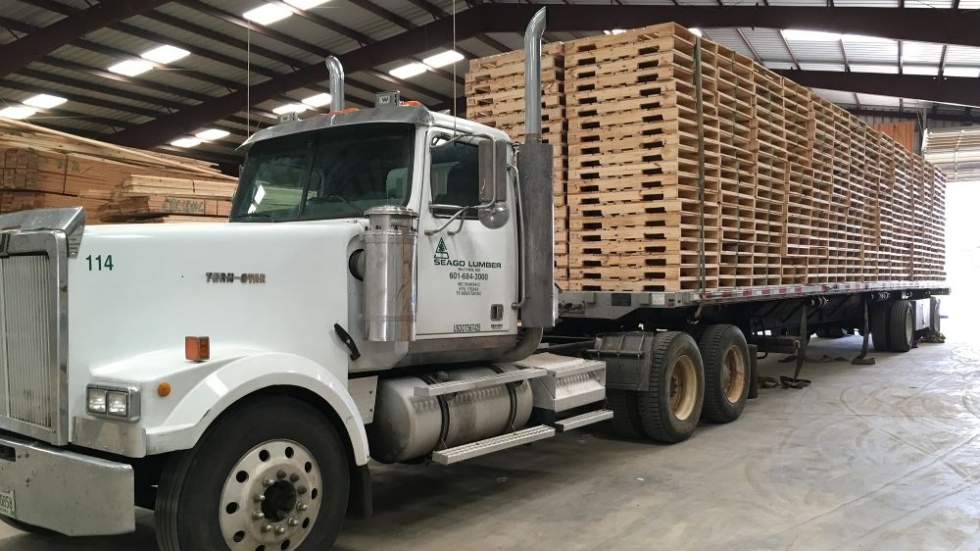
Cooper Marine & Timberlands Acquires Seago Lumber Company
MCCOMB, MISSISSIPPI, Jan 19, 2022 (Press Release) - Cooper Marine & Timberlands (CMT) is excited to announce the acquisition of Seago Lumber Company. Seago Lumber Company, owned and operated by the Seago family since 1948, produces 1-inch dressed boards for sale in both domestic and export markets, and is known in the industry for its superior lumber quality and customer satisfaction.
“Today, we’re excited to welcome the Seago Lumber team into the Cooper family,” said Angus R. Cooper III, President of Cooper Marine & Timberlands. “The addition of Seago Lumber greatly enhances Cooper Marine & Timberlands’ ability to meet growing customer demand and provide the industry’s highest standard of lumber products and customer service.”
For over 70 years and spanning five generations of the Seago family, Seago Lumber has been a leading manufacturer in the lumber industry, as well as a primary employer of personnel throughout southern Mississippi.
“Our focus has always been to produce the highest quality lumber products for our customers. We’re excited to become a member of the Cooper team, and are confident in the continued commitment to our employees and client base,” said D.G. Seago, President and owner of Seago Lumber.
CMT's forestry footprint expands across the southeastern United States and consists of saw mill, chip mill, wood yard, procurement, in-woods chipping, and logging operations. CMT’s pine sawmill located in Carrollton, Alabama, specializes in producing 1-inch rough-cut lumber for domestic and export markets. Cooper Marine and Timberlands is a wholly-owned subsidiary of Cooper/T. Smith, one of America’s oldest and largest forestry and maritime firms.
“CMT welcomes the Seago Lumber team to the Cooper family,” said Jason Anderson, Managing Director of Timber Operations, Cooper Marine & Timberlands. “Seago Lumber will play an important role as we continue to diversify CMT’s product line to now include both rough and dressed boards in the domestic and export lumber markets.”
The acquisition was finalized in January 2022.
About Cooper /T. Smith
Established in 1905, Cooper /T. Smith has operations on all three U.S. coasts and foreign operations in Brazil and Mexico. The company maintains ownership in numerous satellite companies, forming the Cooper Group, including warehousing, terminal operations, tugboats, push boats, barging, barge fleeting, floating terminals, logistics, marine & timberlands, vessel repair and restaurants.
SOURCE: Cooper /T. Smith |
|
|
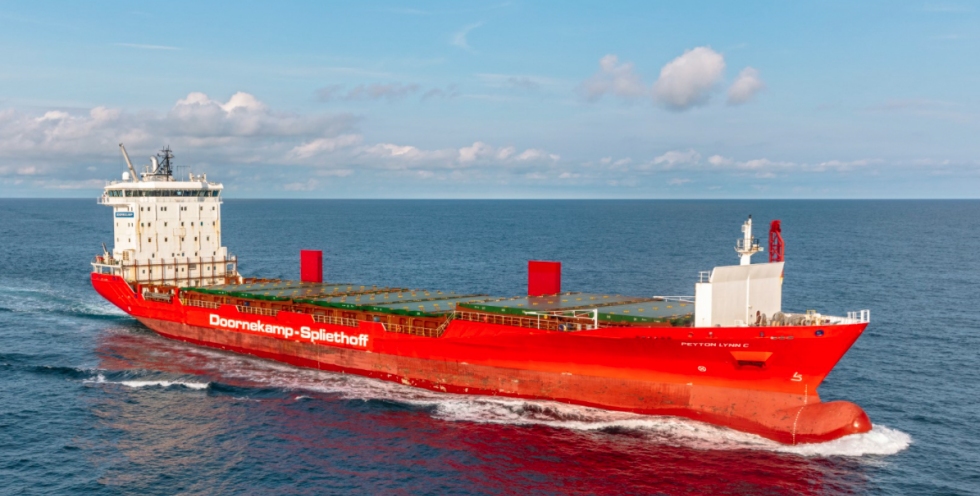
Spliethoff Increases the Frequency of Its Cleveland Europe Express
Sept. 13, 2021 - Spliethoff is increasing the frequency of its Cleveland Europe Express (CEE) service by adding container vessel Peyton Lynn C to the service, in response to the high demand for tonnage between Europe and the Great Lakes. This vessel, owned by Doornekamp Shipping Services, will be taken on long term charter by Spliethoff, sailing in a regular schedule between the ports of Antwerp (Belgium), Picton, Ontario (Canada) and Cleveland, Ohio (USA).
The CEE service has been offering twice-monthly quick-transit all-water sailings between Europe and various Great Lakes ports for many years, catering to a broad range of consumers and industries.
Until now, the service has run mainly with Spliethoff-owned versatile multi-purpose tweendecker vessels, able to carry a variety of cargo types. By adding container vessel Peyton Lynn C, the CEE is expanding its capacity to transport exclusively containers to/from Picton, Cleveland, and Antwerp.
M.v. Peyton Lynn C loaded in Antwerp on Aug. 23 for her maiden voyage in the CEE service. Once loaded, the vessel headed to Doornekamp’s terminal in Picton to discharge cargo, continuing to Cleveland for discharge and loading before subsequently heading back to Antwerp. Transit time is just 12 days to Picton and 15 days to Cleveland.
Spliethoff said, “We are very pleased with this cooperation with Doornekamp Shipping and are looking for further expansion of our services in time. This extra ‘pure container vessel’ is just another step in building the Great Lakes trade!”
SOURCE: Spliethoff |
|
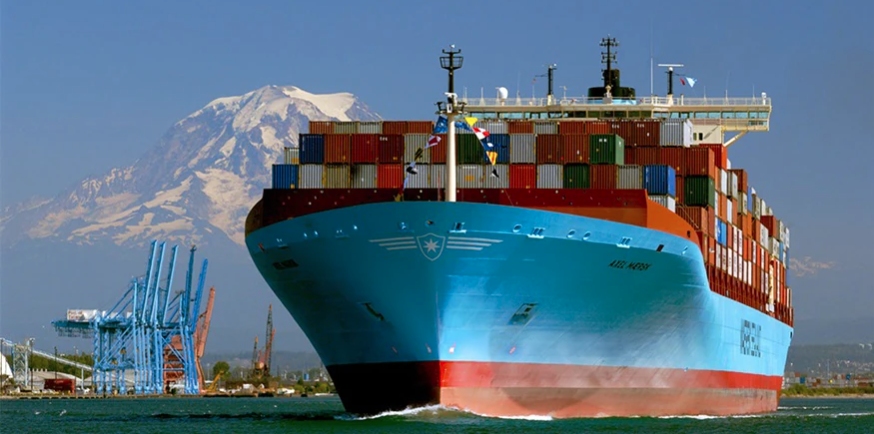
A.P. Moller - Maersk Accelerates Fleet Decarbonisation
Aug. 24, 2021 - In the first quarter of 2024, A.P. Moller - Maersk will introduce the first in a groundbreaking series of 8 large ocean-going container vessels capable of being operated on carbon neutral methanol. The vessels will be built by Hyundai Heavy Industries (HHI) and have a nominal capacity of approx. 16,000 containers (Twenty Foot Equivalent - TEU). The agreement with HHI includes an option for 4 additional vessels in 2025. The series will replace older vessels, generating annual CO2 emissions savings of around 1 million tonnes. As an industry first, the vessels will offer Maersk customers truly carbon neutral transportation at scale on the high seas.
More than half of Maersk’s 200 largest customers have set — or are in the process of setting — ambitious science-based or zero carbon targets for their supply chains. As part of Maersk’s ongoing collaboration with customers, corporate sustainability leaders including Amazon, Disney, H&M Group, HP Inc., Levi Strauss & Co., Microsoft, Novo Nordisk, The Procter and Gamble Company, PUMA, Schneider Electric, Signify, Syngenta and Unilever have committed to actively use and scale zero carbon solutions for their ocean transport, with many more expected to follow.
The vessels come with a dual fuel engine setup. Additional capital expenditure (CAPEX) for the dual fuel capability, which enables operation on methanol as well as conventional low Sulphur fuel, will be in the range of 10-15% of the total price, enabling Maersk to take a significant leap forward in its commitment to scale carbon neutral solutions and lead the decarbonisation of container logistics.
“The time to act is now, if we are to solve shipping’s climate challenge,” said Soren Skou, CEO, A.P. Moller - Maersk. “This order proves that carbon neutral solutions are available today across container vessel segments and that Maersk stands committed to the growing number of our customers who look to decarbonise their supply chains. Further, this is a firm signal to fuel producers that sizable market demand for the green fuels of the future is emerging at speed.”
Maersk will operate the vessels on carbon neutral e-methanol or sustainable bio-methanol as soon as possible. Sourcing an adequate amount of carbon neutral methanol from day one in service will be challenging, as it requires a significant production ramp up of proper carbon neutral methanol production, for which Maersk continues to engage in partnerships and collaborations with relevant players.
The vessels will be designed to have a flexible operational profile, enabling them to perform efficiently across many trades, and add flexibility regarding customer needs. They will feature a methanol propulsion configuration developed in collaboration with makers including MAN ES, Hyundai (Himsen) and Alfa Laval which represents a significant scale-up of the technology from the previous size limit of around 2,000 TEU. The vessels will be classed by the American Bureau of Shipping and sail under Danish flags.
SOURCE: A.P. Moller - Maersk |
MSC and Shell Sign Collaboration Agreement on Decarbonising Shipping
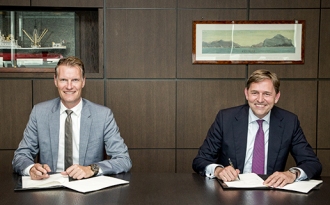 July 17, 2021 - MSC Mediterranean Shipping Company (MSC) and Shell International Petroleum Company Limited (Shell) have agreed to work closely together to help accelerate the decarbonisation of the global shipping sector. The long-term memorandum of understanding will help MSC and Shell to play enhanced roles in the energy transformation of shipping, as developers and early adopters of innovative technologies and fuel solutions. July 17, 2021 - MSC Mediterranean Shipping Company (MSC) and Shell International Petroleum Company Limited (Shell) have agreed to work closely together to help accelerate the decarbonisation of the global shipping sector. The long-term memorandum of understanding will help MSC and Shell to play enhanced roles in the energy transformation of shipping, as developers and early adopters of innovative technologies and fuel solutions.
The companies plan to develop a range of safe, sustainable and competitive technologies that can reduce emissions from existing assets and help to enable a net-zero emissions future for shipping.
Bud Darr, EVP Maritime Policy and Government Affairs, MSC Group, said: “MSC’s efforts to decarbonise include strong partnerships with a range of companies across the industry. This partnership with Shell is a great example of the type of commitment that is needed to catalyse low-carbon solutions for the shipping sector.
“To reach that ultimate goal of complete decarbonisation, we must look at a set of solutions. We need significant advances in research and development and fuel development. MSC welcomes partnerships like this with Shell that are designed to facilitate cross-sector information sharing and prove how collaboration is key in defining the best pathway to a net-zero future,” said Mr Darr.
Melissa Williams, President, Shell Marine, said: “Shell wants to play a central role in the transition to net zero. Partnering with our customers to develop new technologies and fuels will help accelerate progress. Combining MSC’s experience as one of the world’s largest shipping companies with Shell’s expertise as a global energy supplier will help bring about effective solutions for this vital part of the world economy.”
Shell and MSC have worked together over the last 10 years on projects, including bunkering biofuels and trialling very and ultra-low sulphur fuels.
MSC and Shell technical and commercial teams will collaborate to develop and deploy net-zero solutions such as zero-emission fuels of the future and the technologies that will enable them, including fuel cells, with the ambition of contributing towards a zero-carbon flexi-fuel concept vessel. They will also work together on energy efficiency technologies, including digital services and platforms.
The partners continue to envisage a range of fuel solutions on the route to a net zero future and are also exploring options such as hydrogen-derived fuels and the use of methanol as a marine fuel. Both companies each have been exploring the significant potential benefits of progressing from fossil-based liquefied natural gas (LNG) to bio-LNG or synthetic variants. Together, the partners will explore opportunities for MSC to use LNG in its fleet, as the lowest emissions fuel widely available today. They will also consider future pathways, including methane-slip abatement technologies that will further bring down LNG’s emissions.
The partnership also offers an opportunity for Shell and MSC to work together to engage the industry and its stakeholders on strategic policy issues, bringing their dual perspectives with the purpose of enabling constructive dialogue and to accelerate decarbonisation in the sector.
SOURCE: MSC |
|
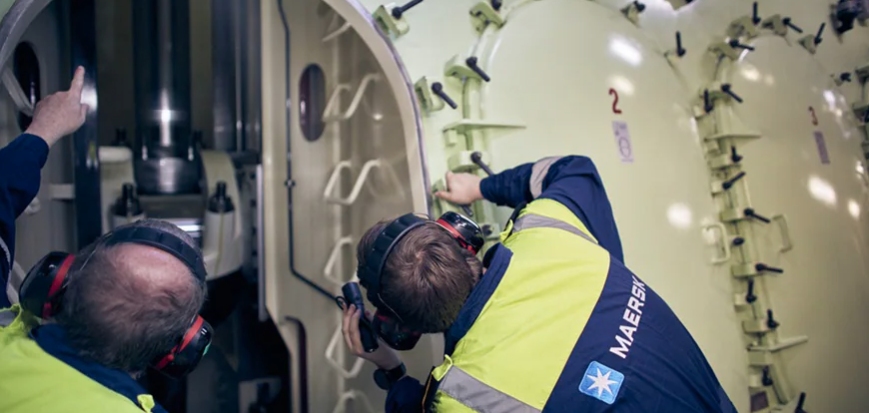
Maersk Signs Shipbuilding Contract for World's First Container Vessel Fueled by Carbon Neutral Methanol
July 1, 2021 (Press Release) - A.P. Moller - Maersk and Hyundai Mipo Dockyards have agreed on a contract for Hyundai Mipo to build a feeder vessel with a dual engine technology enabling it to sail on either methanol or traditional very low Sulphur fuel. Maersk announced the intention to order the vessel, an industry first, on 17 February 2021. It will fly the Danish flag.
“This groundbreaking container vessel shows that scalable solutions to properly solve shipping’s emissions challenge are available already today. From 2023 it will give us valuable experience in operating the container vessels of the future while offering a truly carbon neutral product for our many customers who look to us for help to decarbonize their supply chains,” says Henriette Hallberg Thygesen, CEO of Fleet & Strategic Brands, A.P. Moller - Maersk.
The feeder will be 172 meters long and will sail in the network of Sealand Europe, a Maersk subsidiary, on the Baltic shipping route between Northern Europe and the Bay of Bothnia. The methanol propulsion configuration for the vessel will be developed by MAN Energy Solutions and Hyundai Engine and Machinery (main engine) and Himsen (aux engine) in collaboration with Hyundai Mipo and Maersk. Classification society will be American Bureau of Shipping (ABS).
”Developing this vessel is a significant challenge, but we have already come a long way in our work with the yard and the makers to reach this milestone. While we are pioneering these solutions for our industry, we are working with well-proven technologies and the cost potential from further scaling is becoming very clear to us,” says Ole Graa Jakobsen, Head of Fleet Technology, A.P. Moller - Maersk.
More than half of Maersk’s largest customers have set – or are in the process of setting – ambitious science-based or zero carbon targets for their supply chains, making the order another important step in the Maersk efforts to support the rising number of customers calling for carbon neutral products.
About A.P. Moller - Maersk
A.P. Moller - Maersk is an integrated container logistics company working to connect and simplify its customers’ supply chains. As the global leader in shipping services, the company operates in 130 countries and employs approximately 80,000 people. |
|
|
|
|
<< first < Prev 1 2 3 4 5 6 7 8 9 10 Next > last >>
|
|
Page 3 of 16 |